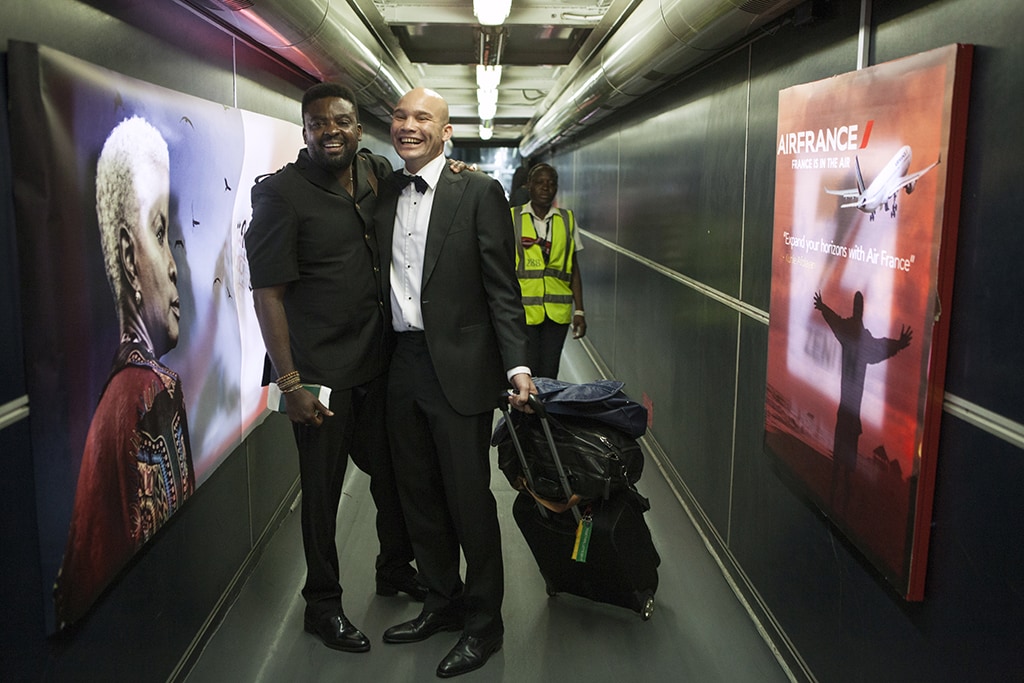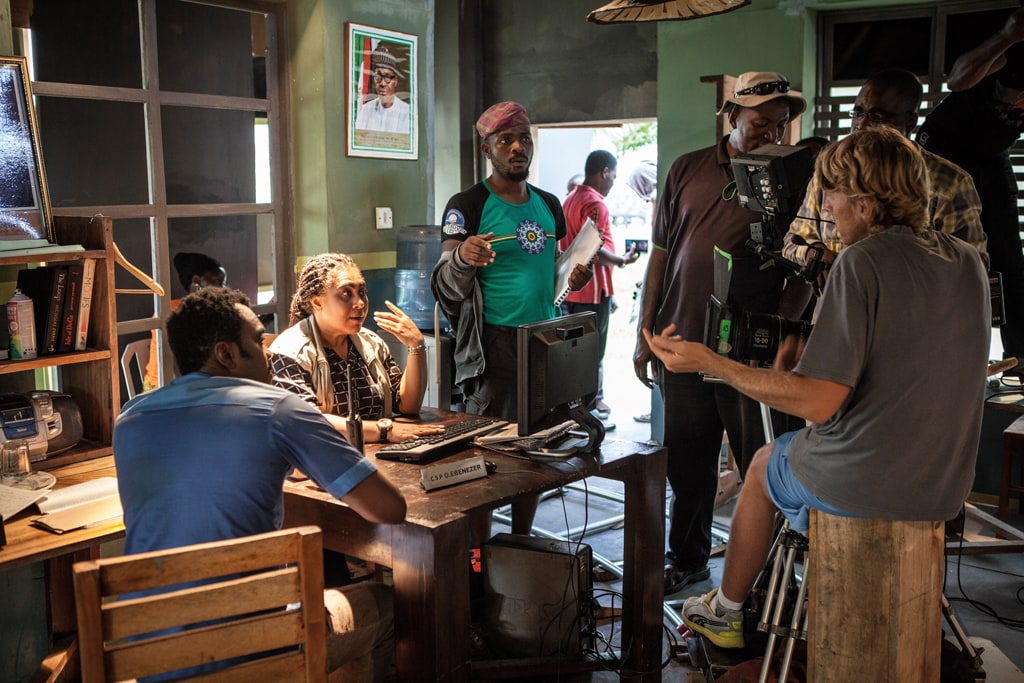Air France’s Cameo in a Star-Studded Nollywood Movie
Share

APEX Insight: Riding on the wings of Air France, Nollywood director Kunle Afolayan has a plan to take his latest film, The CEO, and African cinema to new heights.
His name might not have the ring of “Steven Spielberg” in an American household, but in Nigeria, Kunle Afolayan is a sought-after director. His films Phone Swap, The Figurine and October 1 are breakthrough films that have shined a spotlight on Nigeria’s Hollywood – Nollywood – and his latest movie, The CEO, is equally anticipated.

Last summer, Air France appointed the director as its ambassador, but it was unclear what was coming. Then weeks before the launch of the film, it was announced The CEO would have an unconventional premiere. On June 1, a red carpet was rolled out at Murtala Muhammed International Airport, guests were met with a cocktail party at the boarding gate of Flight AF149 from Lagos to Paris and the film was screened on board. The journey ended at the opening of Nollywood Week in Paris, where The CEO kicked off the film festival.
Air France, an airline with a history of supporting French cinema, the Cannes Film Festival and, as of last year, Nollywood Week, met Afolayan while The CEO was already in production. The airline wanted to be closer to its Nigerian customers and felt that despite headlines that tend to paint Nigeria in riches, corruption and terrorism, “We think it is also important to try to give a good image of Nigeria abroad and to also disseminate their culture,” says Frank Legré, senior vice-president of Africa, Air France.
“It is also important to try to give a good image of Nigeria abroad and to also disseminate their culture.” – Frank Legré, Air France
Meet Nollywood
Unbeknownst to most people, Nollywood has the second-highest output of films in the world and produces some 2,000 titles a year – fewer than Bollywood but much more than Hollywood. The typically low-budget, DIY videos that are churned out within weeks and reflect current issues contributed significantly to Nollywood’s rise. But the pace has since slowed down. “There’s been more investment in equipment and generally improved professionalism across the industry,” says Mary Njoku, an actor and head of the Creative Talent Perspective team at ROK Studios, based in Lagos. “Fewer films are being made, but the quality of output is really improving.”

Since Afolayan became ambassador, images of him flying with Air France, in meetings at the airline group’s headquarters, on a boat in Amsterdam’s canals for King’s Day and behind the scenes of The CEO‘s post-production have surfaced on his social media feeds. He posted: “I had an interactive session with the commercial directors of #AirFrance/#KLM … and we discussed the importance of brand association and how film can be used to push sales, marketing and, most importantly, create relationships and connections among people especially in #Africa.”
Spotlight on Africa
Afolayan was born in Nigeria and started his film career in Nollywood, but The CEO is intentionally pan-African. The director went to great lengths to cast actors from all over Africa. And with the help of Air France, the film takes viewers to Casablanca, Nairobi, Abidjan and Lagos, and features Arabic, Swahili, Yoruba, English, French and Chinese languages. “People from West Africa will be happy to see Angélique Kidjo. People from South Africa will be happy to see Nico Panagio. It’s very well prepared and planned by Afolayan,” Legré says. “He really wants to make it a pan-African success.”
According to the International Air Transport Association’s (IATA) Air Passenger Forecast, by 2034, Asian, South American and African routes will see the fastest growth; seven of the 10 fastest-growing markets in terms of percentage will be in Africa (Malawi, Rwanda, Sierra Leone, Central African Republic, Tanzania, Uganda and Ethiopia); and Africa will see 294 million air passengers annually.
“Our target goes beyond the continent.” – Jean-Victor Ayite, Côte Ouest Audiovisuel
Jean-Victor Ayite, international business coordinator of Côte Ouest Audiovisuel, one of the largest distributors of television content in Africa, based in Abidjan, saw evidence of this passenger growth at APEX MultiMedia Market earlier this year. He said he was surprised by the interest from Middle Eastern and American carriers in African content. “I was talking with [a French airline that] was surprised that in a plane that was leaving from Paris to Dubai, 70 percent of the people were African … Even in the US, the African diaspora is very important.”
Ayite notes that most airlines, especially those with just a few routes to and from Africa, are not going to take up loads of African films and TV shows, but they will be interested in selecting the best titles. “They want to give a freshness, a new touch,” Ayite says. “There will be a larger and larger demand of flights for business to Africa, and for tourism, and most of the airlines are trying to show their position as an airline that hasn’t forgotten this part of the world…”
Although Nollywood steals much of the spotlight, it is hardly Africa’s only cinema. South African Airways, Ethiopian Airlines and Emirates, for example, stock a library of African content from Ghana, South Africa, Uganda and beyond. “Our target goes beyond the continent,” says Ayite, who counts a growing diaspora, better marketing, industry improvements and directors like Afolayan as reasons African cinema is getting noticed. “He’s somebody who is very, very demanding of himself and his teams … He’s mad about quality. And he’s mad about Africa. The way he picks his stories enables him to speak to all the world.”
This story was originally published as “A Match Made in Nollywood,” in the June/July issue of APEX Experience magazine.


